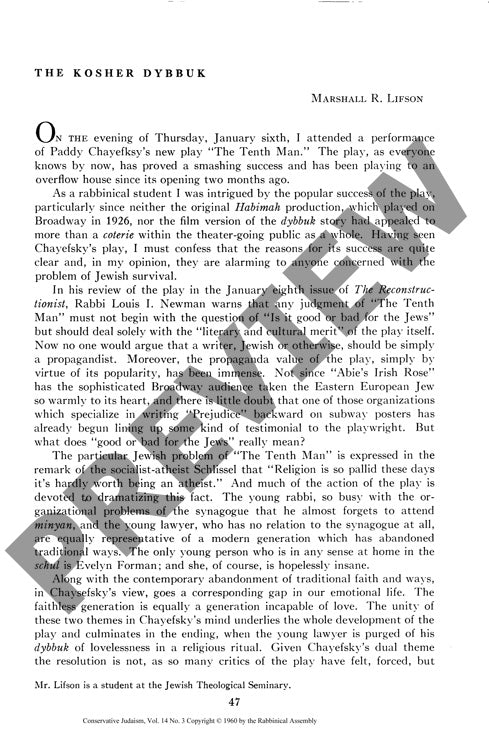The Kosher Dybbuk
Couldn't load pickup availability
In mid-twentieth century America, Paddy Chayefsky's "The Tenth Man" achieved widespread acclaim by presenting Jewish mysticism for mainstream audiences, yet fundamentally mishandled its core spiritual elements. Through literary analysis, cultural criticism, and firsthand observation of theatrical performances and audience responses, this investigation reveals how Chayefsky's treatment of the dybbuk concept exemplifies a problematic "double-think." The playwright deploys possession simultaneously as literal supernatural occurrence for his female character and metaphorical psychological construct for his male protagonist. By privileging psychiatric over religious authority in its resolution and reducing Jewish ritual to therapeutic scenery, the play subtly transforms traditional Jewish spirituality into a universalized, essentially pagan worldview where divine and romantic love become interchangeable. The play's broad appeal stems precisely from this dilution of authentic Jewish content - a "kosher" adaptation that speaks to larger questions about religious authenticity and cultural preservation in postwar American Jewish life.

More Information
-
Physical Description
-
Publication Information
Published 1960
ISBN
-
Publication Credits
Marshall Lifson

